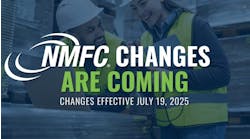Trucks are getting older, parts are getting hard to find, the technician shortage seems like it is never going to go away. All these factors—and more—are making it even more daunting than usual to keep trucks and trailers properly maintained and repaired.
Now might be a good time for fleets to consider moving away from servicing their own vehicles to contract maintenance. The process of switching maintenance models begins with an inward look. A good contract maintenance provider is going to need to have a complete understanding of your operation in order to structure a program that will ensure your assets are kept in top operating condition. You need to be able to present them with data about the kinds of equipment you operate, including vehicle age, mileage, and duty cycle. You also need to inform them of the types of failures your equipment is seeing and share information on preventive maintenance compliance.
See also: 10 questions to ask an outside service provider
The next step is to gather information about the firms you are considering turning your maintenance over to. Start by finding out which makes and models of trucks they have experience working on. Ask them if their technicians have completed OEM-sponsored training. Also, find out about other types of training their technicians have completed and how many of the techs are ASE certified in what areas.
Have them come into your shop to review the type of tools and equipment you already have, and then ask them what other tools and equipment they would like to see in the shop. Given the current supply chain issues that are making it difficult to get maintenance and repair parts, find out what steps they are taking to ensure that needed parts are in stock. Also, inquire about any volume discounts they are eligible for, which they can pass along to you.
See also: The wealth of data in maintenance inspection reports
Additionally, look at how they track maintenance and repairs and ask about the types of reports they can provide you with. Data captured during maintenance and repair events is invaluable to the fleet when making spec’ing decisions.
When you partner with the right company, switching to a contract maintenance provider can not only take away your maintenance headaches, but you can also have peace of mind that your vehicles will be in top operating condition.
Gino Fontana, CTP, is COO and EVP at Transervice Logistics Inc. Prior to this recent promotion, he was VP of operations at Berkeley Division and Puerto Rico. He has more than 35 years of experience in the transportation and logistics industry with both operational and sales experience.



